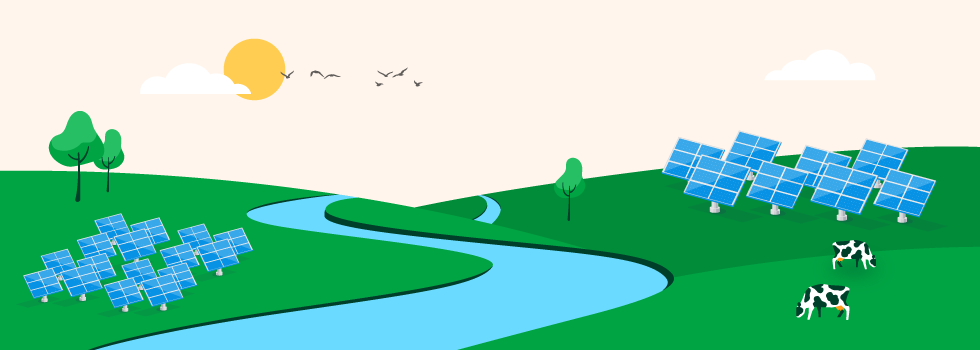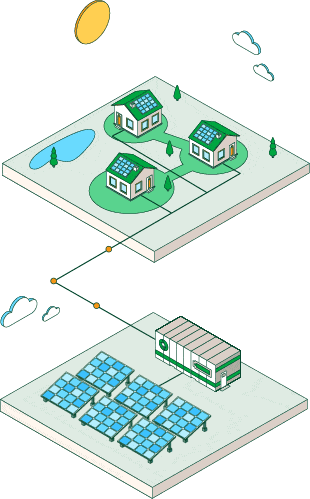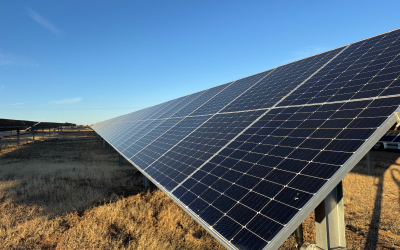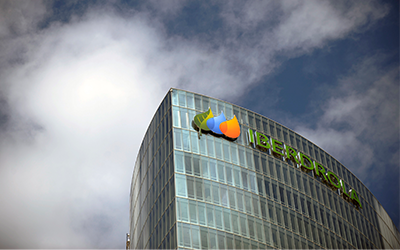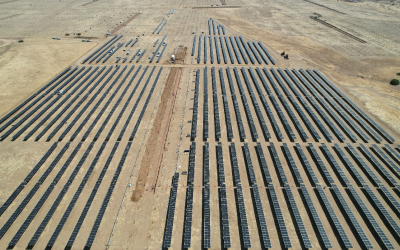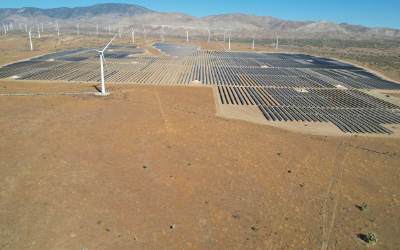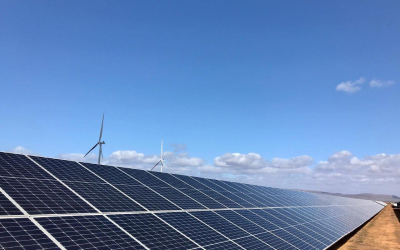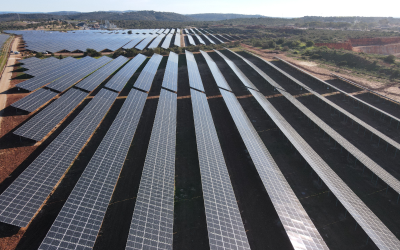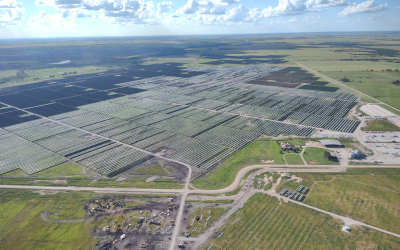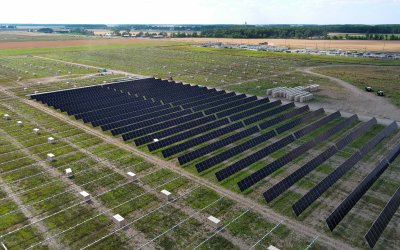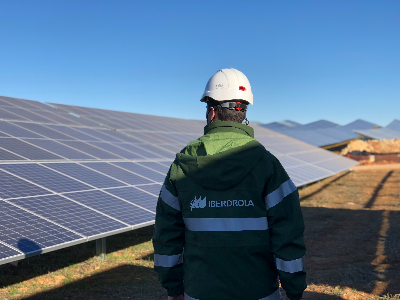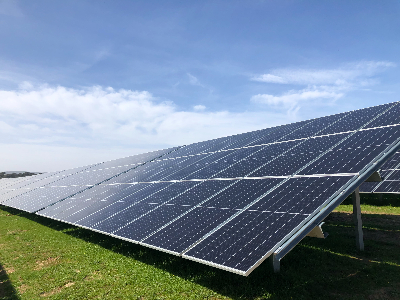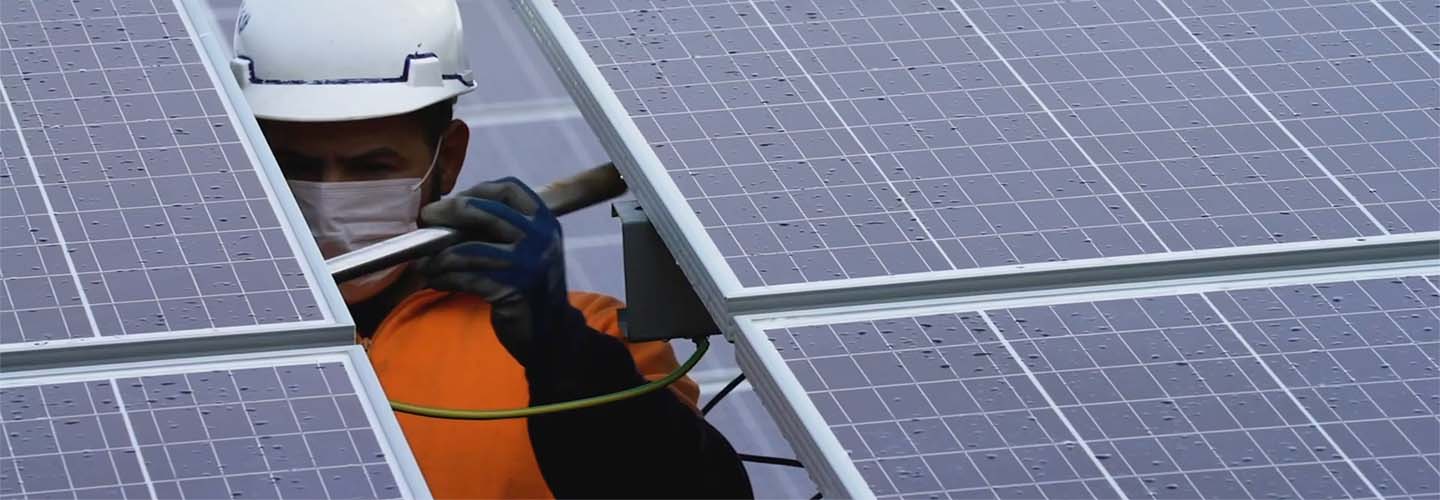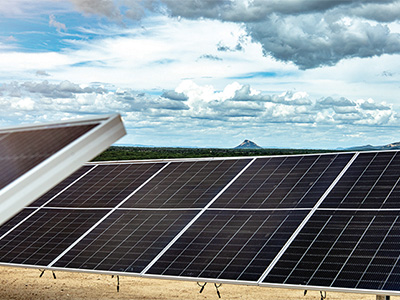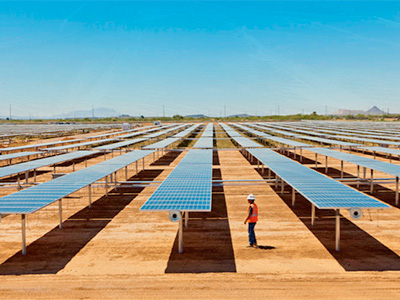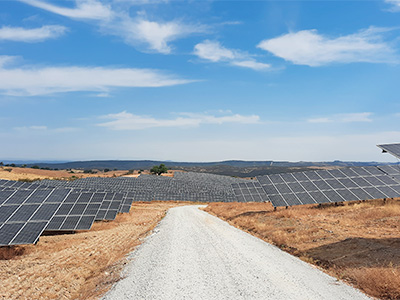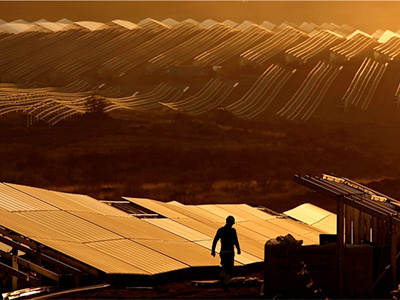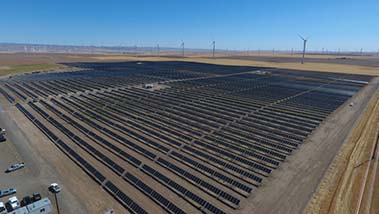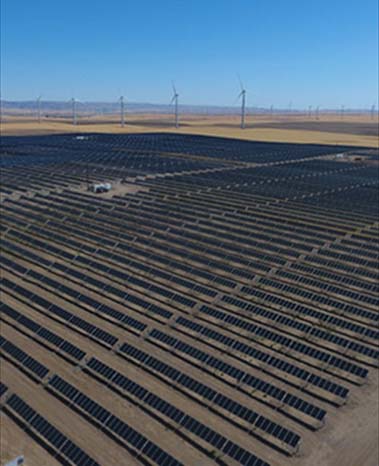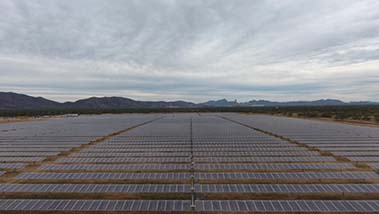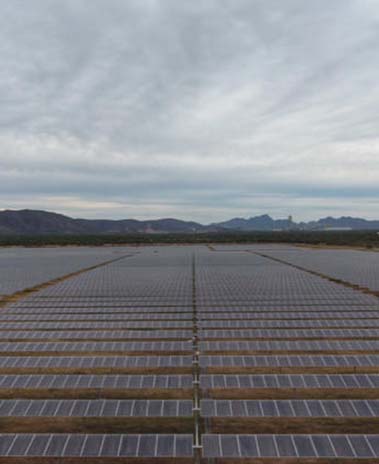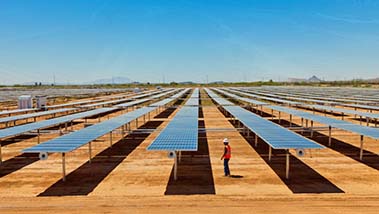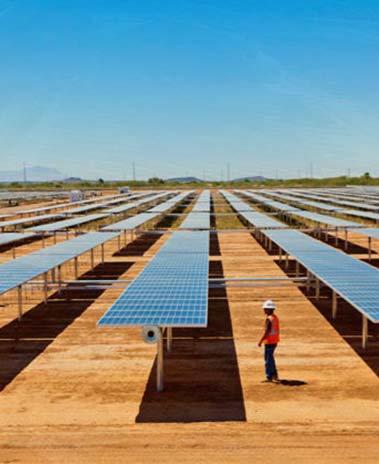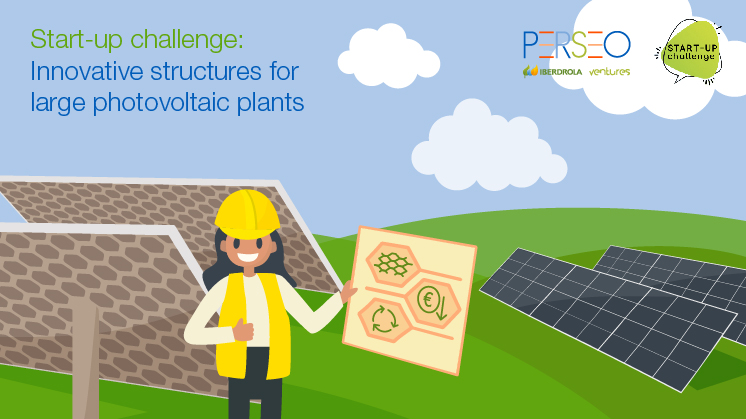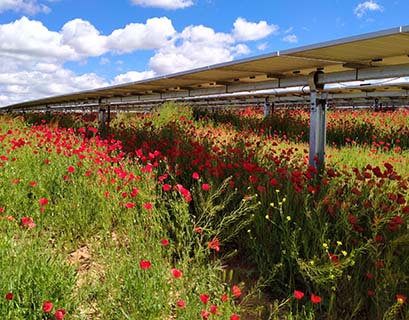-
The Iberdrola group — through Avangrid Renewables, which belongs to its US subsidiary AVANGRID — has built the Lund Hill photovoltaic plant in Klickitat, Washington, USA. With an installed capacity of 194 MW, the new plante is the largest solar facility in the state after its entry into operation.
Iberdrola invests €250 million in its third photovoltaic plant in Extremadura, the Ceclavín plant, which a total installed capacity of 328 megawatts.
-
Through its subsidiary in Spain, Iberdrola group has begun commissioning the Francisco Pizarro project, which, with its 590 MW installed capacity, will provide clean energy to 334,400 homes a year and will become the largest photovoltaic plant in Europe.
Iberdrola confirms the development of its photovoltaic plant in Ciudad Rodrigo (Salamanca), which will have an installed capacity of 318 MW. With an investment of close to €200 million, the project will involver industrial suppliers in the area will create up to 800 jobs during peak periods.
-
Five companies have been selected in the search for sustainable structures that allow cost optimisation either because they are made of alternative materials to steel or because their ratio of steel per MW built is lower than that of conventional structures.
Iberdrola has today started work on the Conde photovoltaic plant (13.51 MW), located in Palmela, with a total surface area of almost 20 hectares. This is one of the four photovoltaic plants that Iberdrola is developing in the Setúbal district,...






